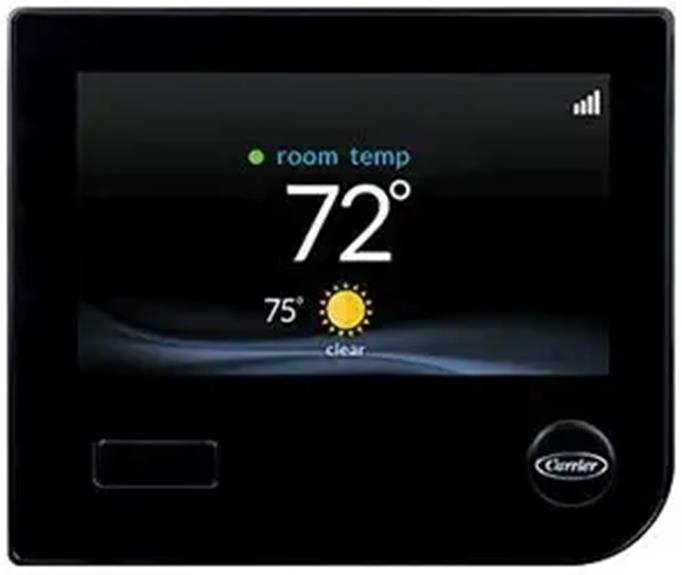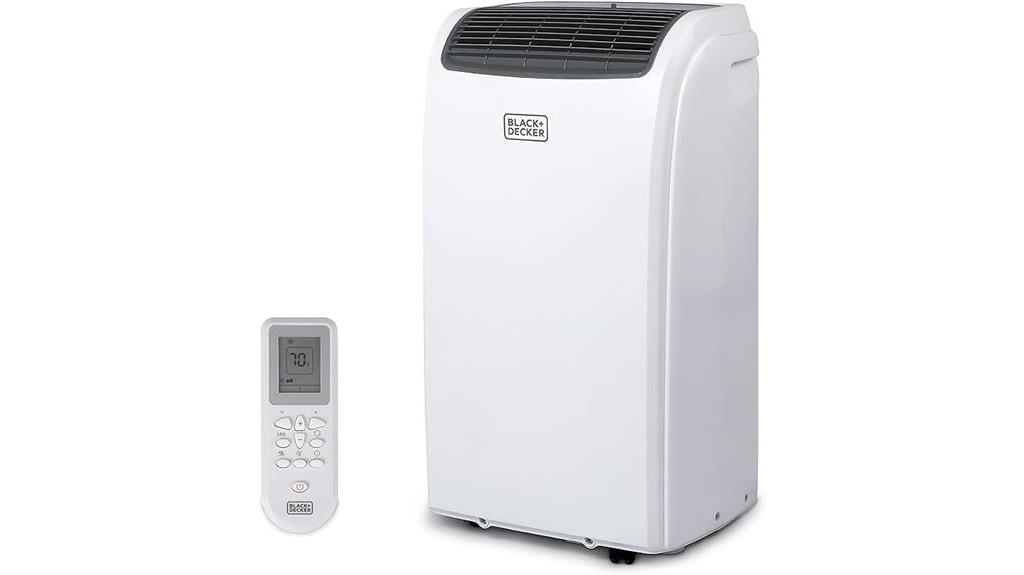We are determined to make the process of installing and servicing residential heat pumps easier to understand.
Get ready to dive into the world of heat pump technology, as we guide you through the process of choosing the perfect system for your home.
Discover the factors to consider during installation and the common issues you may encounter, along with valuable troubleshooting tips.
Plus, explore the importance of regular maintenance and the energy-saving features that modern heat pump systems offer.

Get ready to become a heat pump expert!
Key Takeaways
- The location of the heat pump installation is important and should be in an area with good air circulation and away from obstructions.
- Choosing a heat pump with a high Seasonal Energy Efficiency Ratio (SEER) and Heating Seasonal Performance Factor (HSPF) can lead to energy savings.
- Considering the initial cost, installation expenses, and long-term energy savings is crucial in the cost analysis of heat pump installation.
- Regular maintenance is necessary to prevent and address common issues such as inadequate heating or cooling, poor airflow, unusual noises, and constant cycling on and off.
Understanding Heat Pump Technology
Now let’s dive into the mechanics of heat pump technology and how it works.
Heat pump operation involves the transfer of heat from one place to another, using a refrigerant and a compressor.
The process starts with the evaporator coil, where the refrigerant absorbs heat from the air or ground.
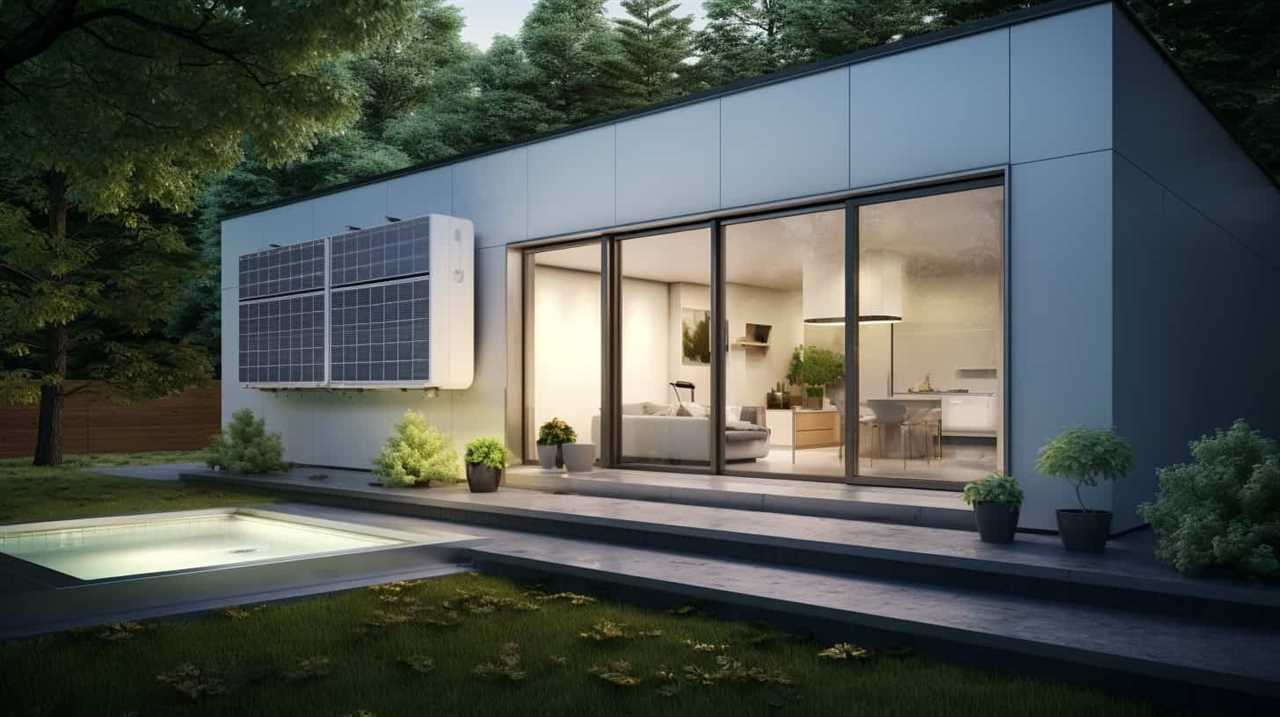
The refrigerant is then compressed, which increases its temperature.
Next, the hot refrigerant passes through the condenser coil, where it releases the heat into the desired space.
The cooled refrigerant is then expanded, returning to its original state, and the cycle starts again.
The benefits of heat pump technology are numerous.

It provides both heating and cooling capabilities, making it versatile and energy-efficient.
Additionally, heat pumps are environmentally friendly, as they don’t rely on fossil fuels.
Choosing the Right Heat Pump for Your Home
One of the most important considerations in choosing a heat pump for our home is determining the appropriate size for our heating and cooling needs. Heat pump sizing is crucial to ensure that the system efficiently heats and cools our living space.
An undersized heat pump will struggle to meet our demands, while an oversized one will cycle on and off frequently, leading to inefficiency and increased energy costs.

To determine the right size, a professional contractor will assess factors such as the size of our home, insulation levels, and climate conditions.
Additionally, when choosing a heat pump, it’s worth considering any available heat pump rebates. These incentives can help offset the initial cost of installation and make the decision to switch to a heat pump more affordable.
Factors to Consider in Residential Heat Pump Installation
When installing a residential heat pump, there are several factors to consider, such as location, efficiency, and cost.
-
Location: The placement of the heat pump is crucial for optimal energy consumption. It should be installed in an area with good air circulation and away from obstructions that could impede its performance.
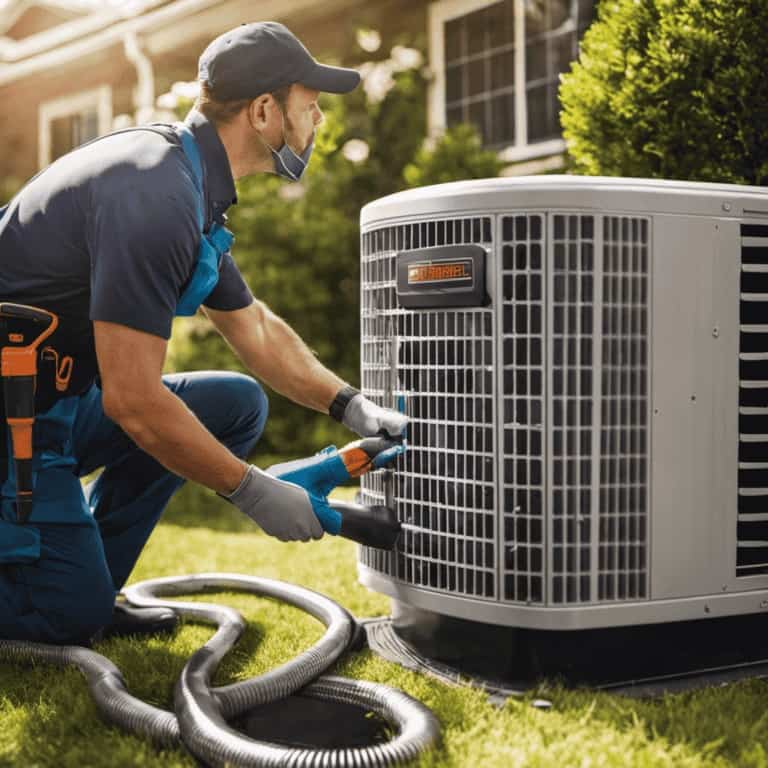
-
Efficiency: It’s important to choose a heat pump with a high efficiency rating to minimize energy consumption. Look for models with a high Seasonal Energy Efficiency Ratio (SEER) and Heating Seasonal Performance Factor (HSPF) for maximum efficiency.
-
Cost Analysis: Before making a decision, conduct a thorough cost analysis. Consider the initial cost of the heat pump, installation expenses, and long-term energy savings. Factor in the potential rebates or incentives available for energy-efficient heat pump installations.
By carefully considering these factors, you can ensure that your residential heat pump installation is efficient, cost-effective, and tailored to your specific needs.
Now, let’s move on to discussing common issues in heat pump service and troubleshooting.
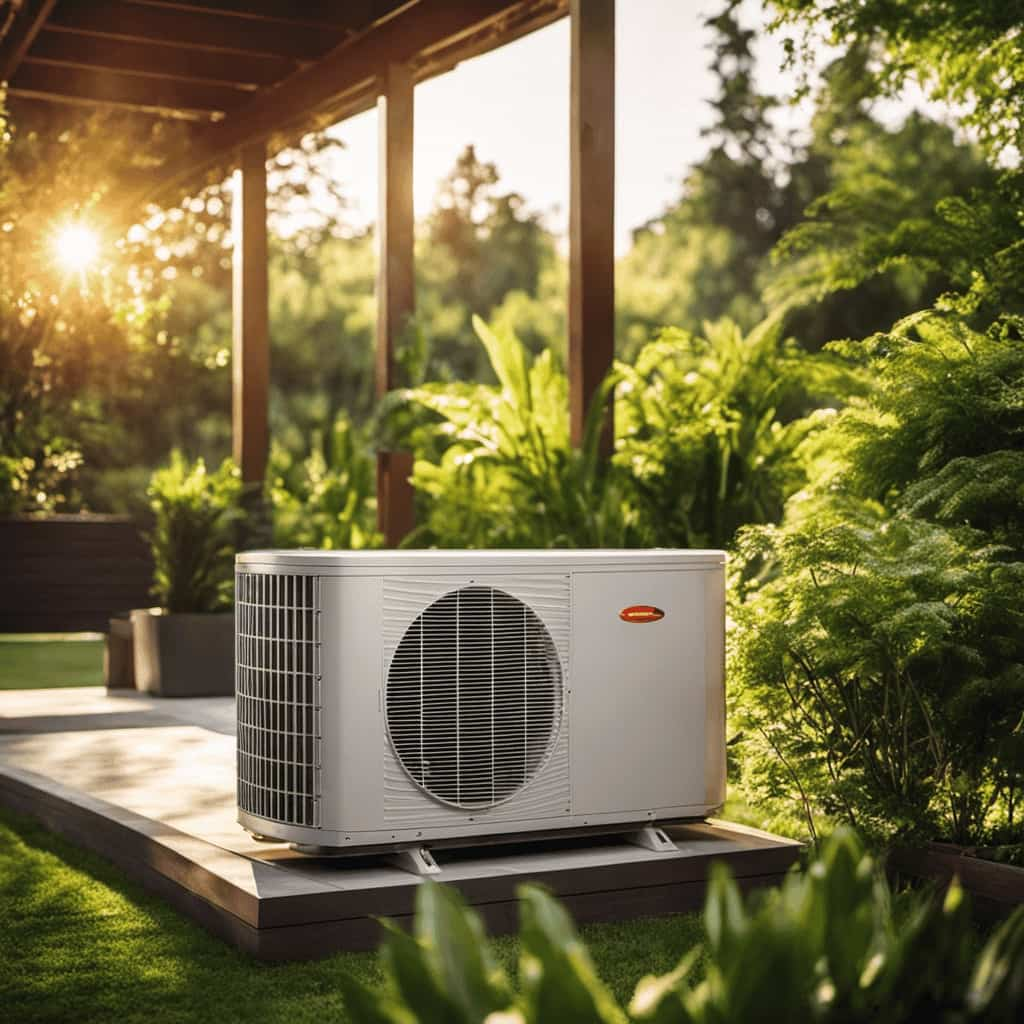
Common Issues in Heat Pump Service and Troubleshooting
Let’s address the common issues that may arise during heat pump service and troubleshooting.
When it comes to heat pump repairs, there are a few key troubleshooting tips to keep in mind.
One common issue is inadequate heating or cooling. This could be due to a refrigerant leak, a faulty compressor, or a problem with the thermostat.
Another issue is poor airflow, which can be caused by clogged filters or a malfunctioning blower motor.
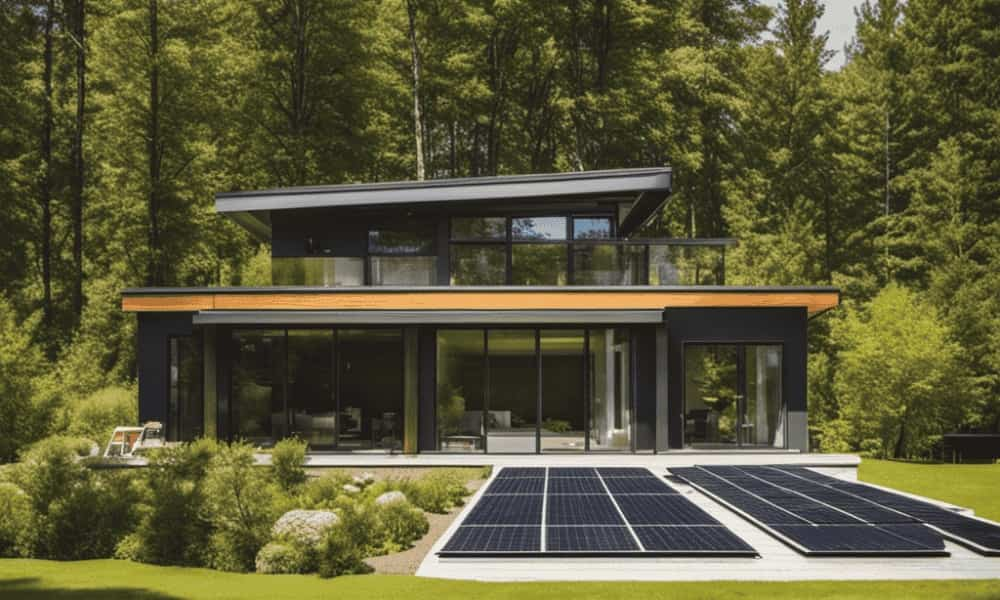
Additionally, unusual noises such as rattling or squealing may indicate a problem with the fan motor or compressor.
Finally, if your heat pump is constantly cycling on and off, it could be a sign of a faulty thermostat or an electrical issue.
Importance of Regular Maintenance for Heat Pump Efficiency
Regular maintenance is crucial for maximizing heat pump efficiency and extending its lifespan. By ensuring that all components are clean and functioning properly, we can optimize the heat transfer process and minimize energy consumption.
Additionally, regular maintenance allows us to identify and address any potential issues before they escalate into costly repairs or complete system failures.
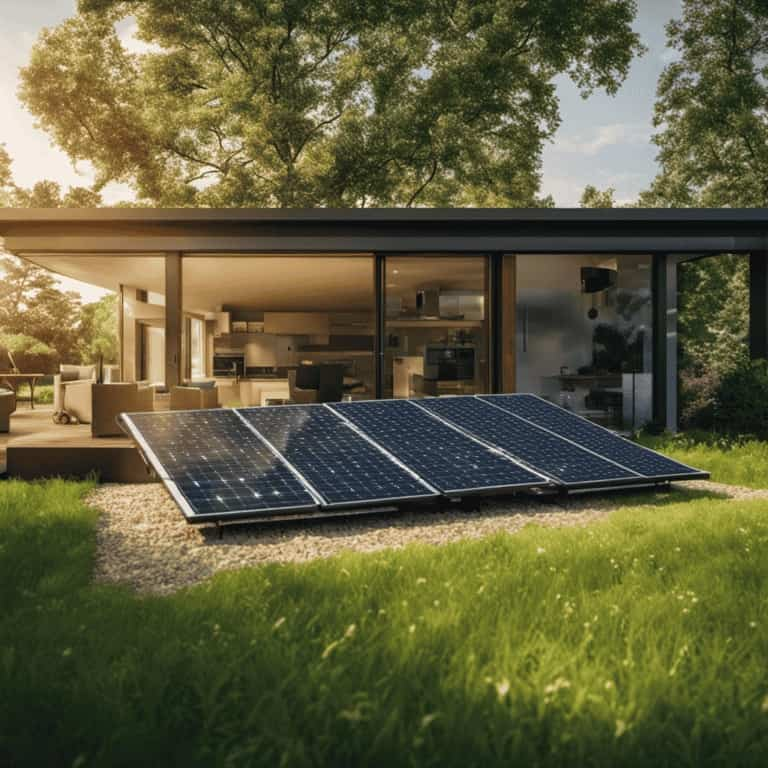
Maximize Heat Pump Efficiency
To maintain optimal heat pump efficiency, we need to prioritize regular maintenance. Here are three essential heat pump maintenance tips to help you maximize performance:
-
Clean or replace air filters: Clogged or dirty filters restrict airflow, making your heat pump work harder and reducing its efficiency. Regularly cleaning or replacing air filters can improve energy efficiency and indoor air quality.
-
Clear debris from outdoor unit: Leaves, grass, and other debris can accumulate around the outdoor unit, obstructing airflow and reducing heat exchange. It’s crucial to regularly clear the area around the unit to ensure proper airflow and maximize heat pump efficiency.
-
Schedule professional maintenance: Regular professional maintenance is vital to keep your heat pump in peak condition. A trained technician can inspect and clean the system, check refrigerant levels, lubricate moving parts, and identify potential issues before they become major problems.

Extend Heat Pump Lifespan
Maintaining regular maintenance is crucial for maximizing heat pump efficiency and extending its lifespan. By following some simple heat pump maintenance tips, you can significantly increase the longevity of your unit. Regularly cleaning or replacing the air filters is essential to ensure proper airflow and prevent strain on the system. It is also important to keep the outdoor unit free from debris, such as leaves and dirt, as this can obstruct airflow and reduce efficiency. Another tip is to regularly check and clean the evaporator and condenser coils to remove any dirt or debris buildup. Additionally, scheduling professional maintenance at least once a year can help identify and address any potential issues before they become major problems. By taking these steps, you can ensure that your heat pump operates at optimal efficiency and serves you well for many years to come.
| Heat Pump Maintenance Tips | Increasing Heat Pump Longevity |
|---|---|
| Clean or replace air filters regularly | Ensure proper airflow and prevent strain on the system |
| Keep outdoor unit free from debris | Prevent obstruction of airflow and reduce efficiency |
| Check and clean evaporator and condenser coils | Remove dirt and debris buildup |
| Schedule professional maintenance at least once a year | Identify and address potential issues early on |
Exploring Energy-saving Features in Modern Heat Pump Systems
We can explore various energy-saving features in modern heat pump systems.
-
Smart Thermostat Integration: Many modern heat pump systems are designed to work seamlessly with smart thermostats. This integration allows homeowners to control the temperature and settings of their heat pump remotely using mobile apps or voice assistants. Smart thermostats can optimize energy usage by learning the homeowners’ preferences and adjusting the temperature accordingly. By intelligently managing the heat pump system, energy consumption can be reduced, resulting in lower utility bills and increased comfort.
-
Energy Rebates: Some heat pump systems come with energy rebates offered by utility companies or government agencies. These rebates incentivize homeowners to upgrade to more energy-efficient heat pump systems. By taking advantage of these rebates, homeowners can offset the initial investment cost and enjoy long-term energy savings. It’s important to check with local utility providers or government websites to determine if any energy rebates are available for heat pump system installations.
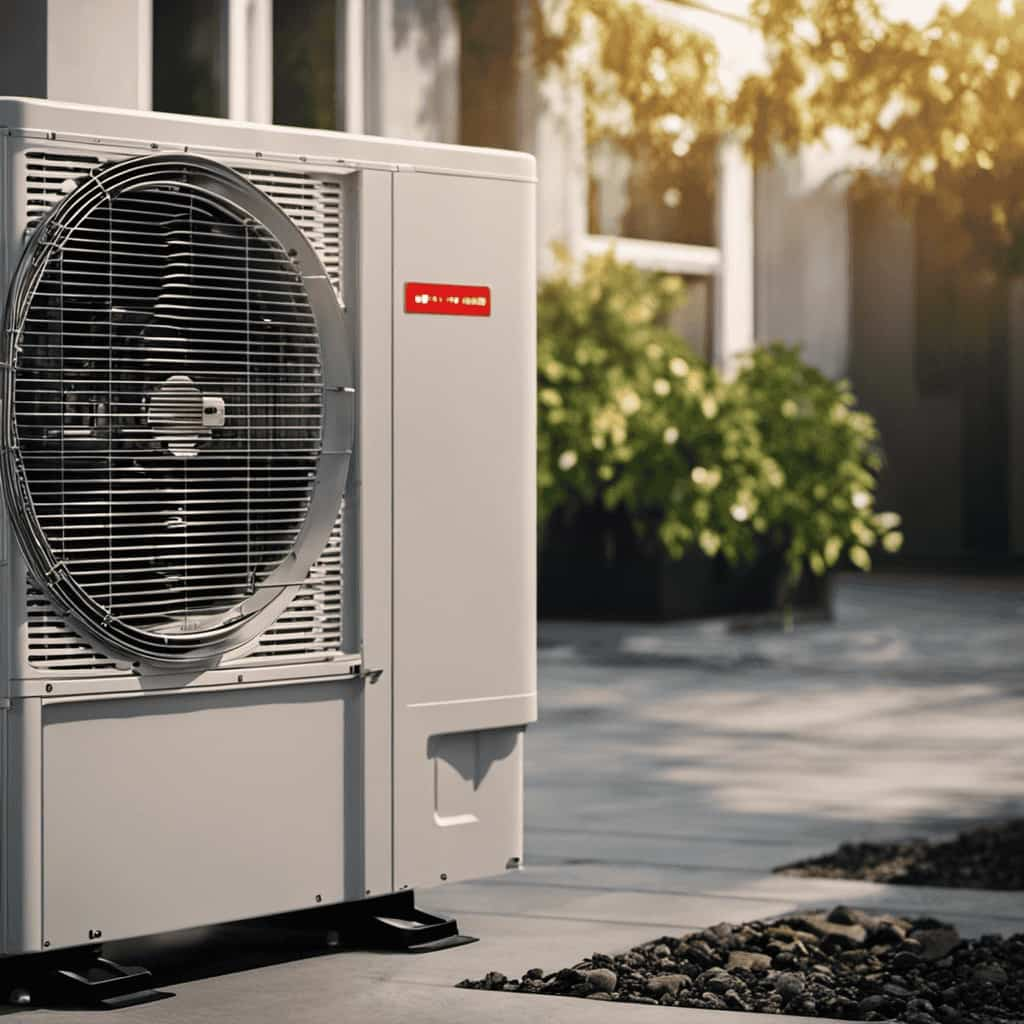
-
Variable-Speed Compressor: Another energy-saving feature found in modern heat pump systems is a variable-speed compressor. Unlike traditional heat pumps that operate at full capacity, even when less heating or cooling is needed, a variable-speed compressor adjusts its speed based on the heating or cooling demand. This allows the heat pump to operate more efficiently and consume less energy. By matching the output to the desired temperature, variable-speed compressors can significantly reduce energy consumption while maintaining optimal comfort levels.
Frequently Asked Questions
What Is the Average Lifespan of a Residential Heat Pump?
The average lifespan of a residential heat pump varies depending on maintenance requirements. Regular servicing and upkeep can extend the life of a heat pump, ensuring optimal performance and efficiency for years to come.
Can a Heat Pump Be Installed in Any Type of Home, Regardless of Its Size or Layout?
Yes, a heat pump can be installed in any home, no matter the size or layout. It’s an efficient and cost-effective option for heating and cooling. Heat pump energy consumption is lower compared to traditional heating systems, resulting in lower utility bills.
Are There Any Government Incentives or Rebates Available for Installing a Heat Pump?
Yes, there are government incentives and rebates available for installing a heat pump. These incentives can help offset the cost of installation and make it more affordable for homeowners.

How Does the Efficiency of a Heat Pump Compare to Traditional Heating and Cooling Systems?
When comparing the efficiency of a heat pump to traditional systems, we find that heat pumps offer significant energy savings, lower long-term costs, and reduced environmental impact.
Is It Possible to Retrofit an Existing HVAC System With a Heat Pump?
Yes, it is possible to retrofit an existing HVAC system with a heat pump. However, there are challenges involved, such as compatibility and space requirements. Additionally, it is important to consider the cost comparison between retrofitting and installing a new system.
Conclusion
In conclusion, residential heat pump installation and service play a crucial role in ensuring efficient and sustainable heating in homes.
While some may argue that heat pumps can be expensive to install, it’s important to consider the long-term benefits they offer, such as energy savings and reduced carbon emissions.
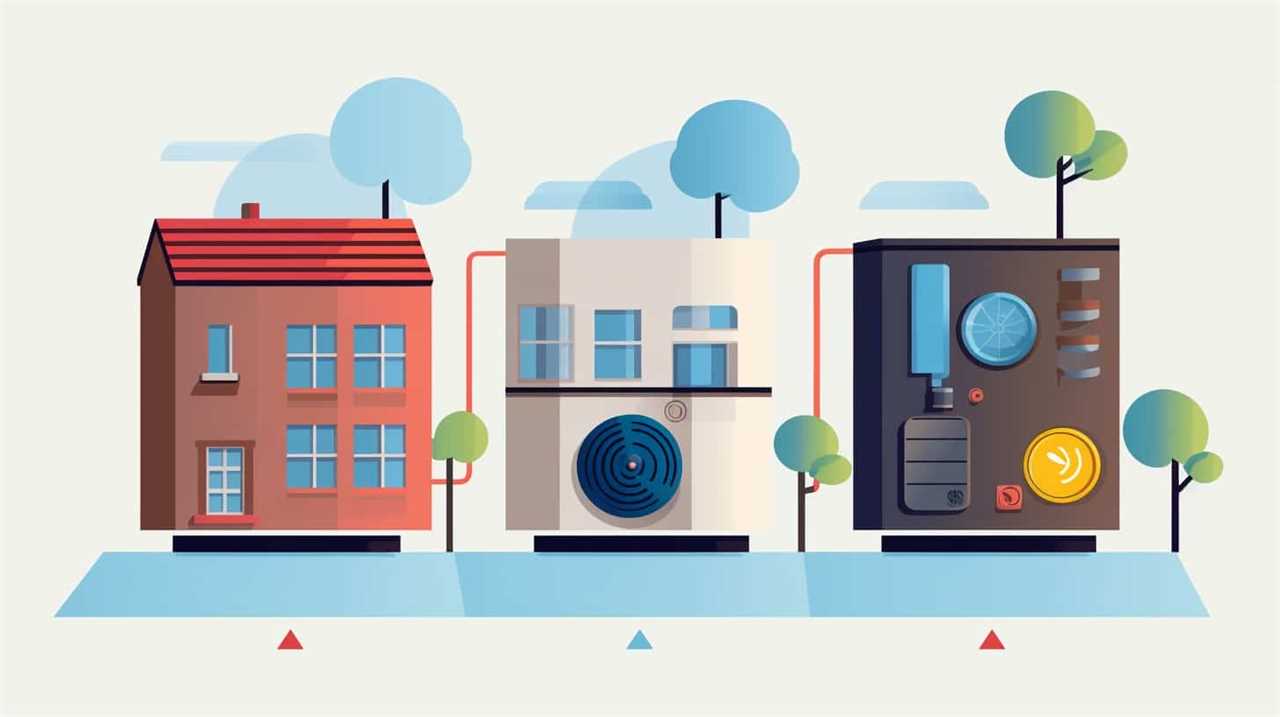
By choosing the right heat pump, addressing common issues, and investing in regular maintenance, homeowners can enjoy the comfort and cost-effectiveness of modern heat pump systems.


